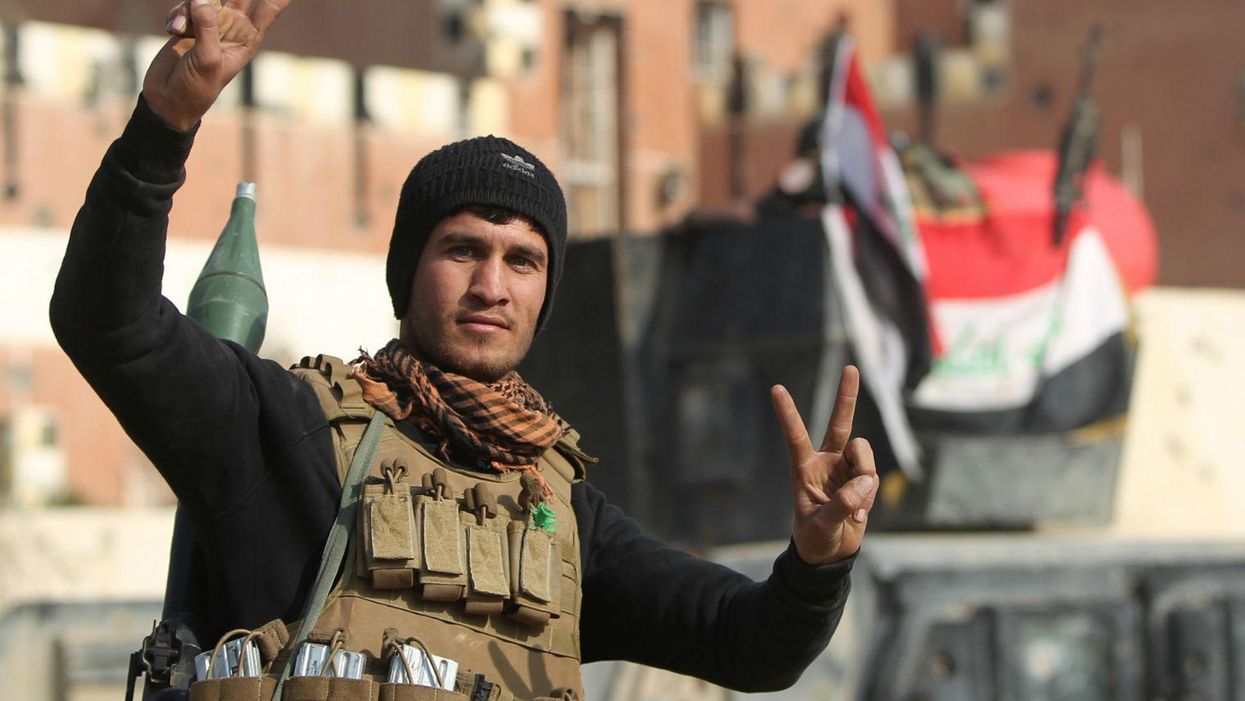News
Bethan McKernan
Dec 31, 2015

A member of Iraq's elite counter-terrorism service in Ramadi on December 28, 2015
Iraqi security forces swept into the city of Ramadi this week in what has been hailed as a significant victory against jihadi group Isis.
- Why is Ramadi important?
Although a relatively recent gain for the terror group in May 2015, Ramadi is only 60 miles away from Baghdad, and retaking the city is both strategically important and a morale boost for the Iraqi government.
Shi'ite fighters and government troops worked together to gain control of the destroyed city, seen as a symbolic move in the Sunni province of Anbar, and a sign that the Iraqi army has regrouped following defeat after defeat to Isis since Mosul fell without a fight to the group in June 2014.
In addition, US-led air strikes have killed 10 IS leaders in December, including individuals linked to the November 13 Paris attacks, a Pentagon spokesperson said.
- Iraqi prime minister Haider al-Abadi predicted that Isis will be defeated by the end of 2016 - but that probably isn't the case
Iraqi Prime Minister Haider al-Abadi is surrounded by Iraqi security forces during a visit to Ramadi, December 29, 2015 (STR/AFP/Getty Images)An expert i100.co.uk spoke to said the picture is far from as clear cut as that.
Isis lost 14 per cent of its territory overall this year. But while the group lost Ramadi in Iraq and coalition air strikes have also helped Kurdish fighters in Syria advance on Manbij, a city only two hours away from the self-declared caliphate's de facto capital Raqqa, the group has gained control of Palmyra in Syria this year and is also making advances in Afghanistan.
Internationally, too, terror attacks attributed to the group including the downing of a Russian commercial plane above the Sinai and the attack on Paris have heightened fears in the west over the threat the group poses further afield.
-Will we ever comprehensively defeat Isis?
Talking about the US-led coalition campaign Operation Inherent Resolve to attack the group, Michael Knights, a fellow at the Washington Institute for Near East Policy, said:
The objective of [Operation Inherent Resolve] is not to defeat Isis, it's actually very modest.
We want to knock them back down to the level they were in 2013, before they took Fallujah.
-So what comes next?
The group still holds Iraq's second-largest city, Mosul, along with Fallujah.
The next step for the US-led coalition, Knight said, is reclaiming Mosul in the north of Iraq, which will cut off one of Isis' major supply lines. Military strategists hope that this aim will be achieved by the end of 2016.
Of course, knocking Isis back does not mean that the group is defeated. Knight said that a coalition of mostly Islamic rebels who met recently in Quatar and have shown willing to work together should be able to damage the group further.
It won't be as cohesive as we hope, probably, but [the rebels] are quite militarily capable on the ground. Russian strikes have proved that - [Bashir al-Assad's] forces haven't made tremendous gains since the Russian strikes have started.
-And then?
If Isis is comprehensively defeated, Knight said, the rebels could then turn their attention fully to Assad.
In peace talks in New York earlier this month both the Syrian government and rebels sat down to start agreeing terms.
Either way, the war in Syria is still far from over.
A family from Aleppo, stay under a shelter during a rainy day on March 8, 2014, at Uskudar in Istanbul (BULENT KILIC/AFP/Getty Images)Top 100
The Conversation (0)













